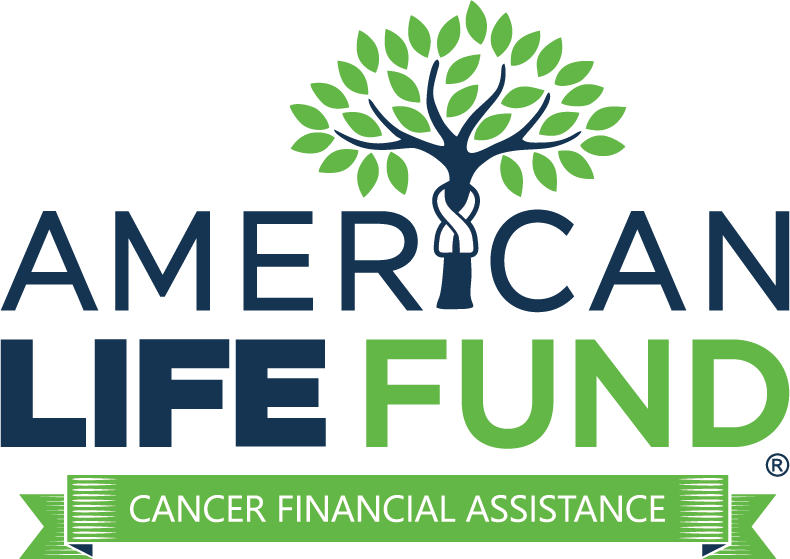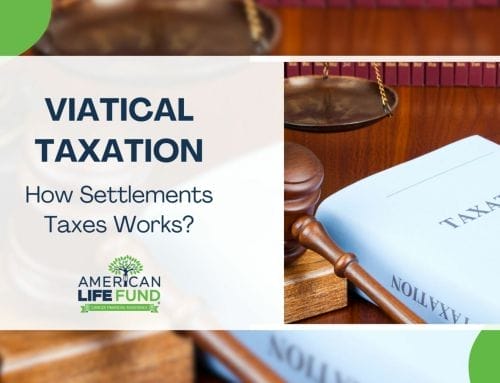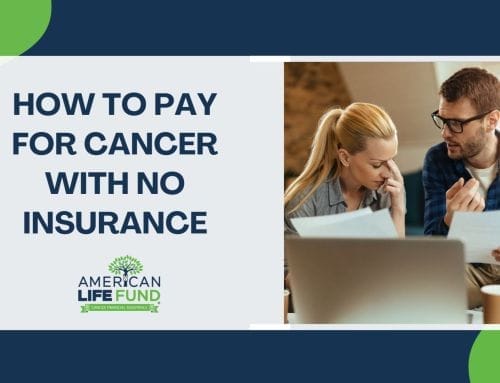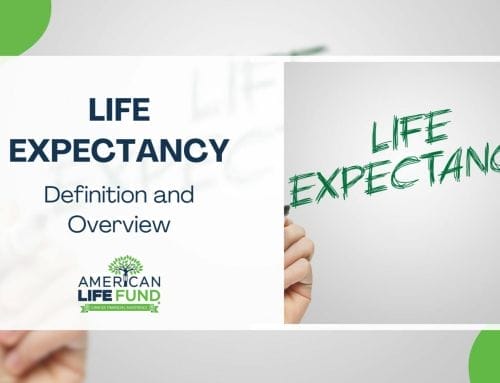In life’s unforeseen circumstances, particularly when facing serious health challenges, individuals often evaluate various financial options to manage their situation. Among these options, viatical settlement providers offer a particular path.
Viatical settlement providers purchase life insurxance policies from policyholders battling life-threatening or serious health conditions, providing them with a lump sum of cash in exchange. This choice, while one of many, presents a distinct set of considerations and implications.
It’s important for policyholders to thoroughly understand what viatical settlements involve, including the roles and responsibilities of the providers, to make an informed decision that matches their needs and circumstances.
This article sheds light on the intricacies of engaging with viatical settlement providers, offering an objective view of their place in the financial options available during challenging times.
Key Takeaways
- Viatical settlement providers are a financial option for those with serious health conditions, allowing the conversion of life insurance policies into cash.
- They offer less than the death benefit but more than the cash surrender value.
- Policyholders must understand all aspects of viatical settlements to make informed decisions.
- The settlement amount is calculated based on policy details, the policyholder’s health, and life expectancy.
- Alternatives include viatical settlement companies, which offer direct services and potentially better financial benefits.
What is a Viatical Settlement Provider?
Viatical Settlement Providers are specialized financial organizations operating in a niche insurance industry sector. Their primary function is to offer viatical settlements, arrangements where a person with a life-threatening or serious health condition can sell their life insurance policy to a third party. The life insurance company, which initially issued the policy, is not directly involved in the viatical settlement process, but its policy terms are a key factor in the transaction.
In exchange, the life insurance policyholder receives a lump sum of money that is typically less than the death benefit but more than the policy’s cash surrender value. While similar to viatical settlements, a life settlement typically involves policyholders who are older and not necessarily facing a life-threatening condition
These providers evaluate the life insurance policies based on factors like the policyholder’s health status and estimated life expectancy. The amount offered by viatical settlement providers reflects their assessment of these factors. Before finalizing a deal, it’s important for policyholders to thoroughly review the viatical settlement contract, which outlines the terms of the agreement with the provider.
It’s important to note that while viatical settlements can provide immediate financial relief, the policyholder forfeits the future death benefit of the insurance to the purchasing entity. Given their role, viatical settlement providers are part of a highly regulated industry, with oversight to ensure ethical and fair practices.
However, individuals considering this option should conduct thorough research and consult with financial advisors to understand the full implications of entering into a viatical settlement. This decision warrants careful consideration as it impacts the policyholder’s financial legacy and insurance arrangements.

How a Viatical Settlement Provider Calculates the Settlement Amount
When a policyholder approaches a viatical settlement provider, the amount they can receive for their life insurance policy is not arbitrary. A viatical settlement is calculated through a systematic process that takes into account several factors.
Here’s a simplified breakdown of the steps involved:
- Assessment of Life Insurance Policy: The provider reviews the policy details, including the death benefit and the premiums due.
- Review of Medical Records: The provider evaluates the policyholder’s medical records to determine the severity of their health condition. This step is crucial in assessing the insured’s life expectancy.
- Estimation of Life Expectancy: The provider estimates how long the policyholder is expected to live based on medical data. Shorter life expectancies often result in higher settlement offers.
- Calculation of Expected Payouts: The provider calculates the expected future payouts, including the premium payments the policyholder must make until death.
- Determination of Settlement Offer: Considering the expected payouts and the estimated life expectancy, the provider makes a settlement offer. This amount is typically a percentage of the policy’s death benefit.
Suppose a policyholder has a life insurance policy with a $ 500,000 death benefit. When they approach a viatical settlement provider due to a life-threatening health condition, the provider assesses their policy and medical condition.
Considering the range for viatical settlements, the provider might offer 50% to 80% of the death benefit. In this case, the policyholder could receive anywhere from $250,000 to $400,000 as a settlement. The exact amount would depend on various factors, including the policyholder’s life expectancy and the cost of continuing the policy’s premiums.
Understanding the details of your life insurance contract is important before considering a viatical settlement, as it affects the settlement value and eligibility.
For more information, see our viatical settlement calculator page.

What Are the Benefits of Choosing a Viatical Settlement Provider?
Choosing a viatical settlement provider can offer several benefits for individuals with life-threatening or serious health conditions who hold life insurance policies.
Here are some key advantages:
- Immediate Cash: Provides quick access to funds that can be used for any purpose, offering financial relief during challenging times.
- No More Premiums: Selling the policy ends the requirement to pay ongoing insurance premiums, easing financial burdens.
- Straightforward Process: Viatical settlement providers typically have a streamlined process, making it easier and quicker for policyholders to receive funds.
- Non-Repayable Funds: The money received is not a loan and doesn’t need to be repaid, reducing future financial obligations.
- Potential Tax Benefits: In some instances, the proceeds from a viatical settlement might be tax-free, though it’s advisable to consult a tax professional.
What Are the Drawbacks of Choosing a Viatical Settlement Provider?
When considering a viatical settlement provider, knowing the potential drawbacks is essential. Here are some ideas to consider:
- Loss of Policy Benefits: When you sell your life insurance policy, you and your beneficiaries lose the death benefit. This can significantly impact your financial legacy and the future security of your dependents.
- Lower Than Full Value: The amount received from a viatical settlement is usually much less than the policy’s death benefit. This means you’re sacrificing the full potential value of your policy for immediate cash, which might not be the best long-term financial decision.
- Complex Tax Implications: While some viatical settlements may offer tax benefits, the viatical tax implications can vary greatly. Without proper guidance, you might face unexpected tax liabilities.
- Potential for Exploitation: Navigating the viatical settlement market can be challenging. Some providers offer less than the fair value of your policy, posing a risk of exploitation. It’s crucial to approach this process with caution and seek professional advice.
- Emotional Considerations: Selling a life insurance policy when one has a serious health condition can be emotionally taxing. It’s a choice that requires careful emotional and financial consideration.
- Impact on Eligibility for Assistance: Receiving a lump sum from a viatical settlement might affect your eligibility for certain government aid or assistance programs, which often have asset and income limits.
Given these drawbacks, it’s vital to carefully evaluate whether a viatical settlement is the best option for your specific circumstances. Consulting with financial and legal advisors can clarify this complex decision and help you avoid pitfalls.

What Are My Other Options?
When facing life-threatening or serious health conditions, policyholders have several options to consider beyond viatical settlement providers. Two prominent alternatives are viatical settlement companies and viatical settlement brokers. Understanding the distinctions between these entities is crucial for making an informed decision about your life insurance policy.
Viatical Settlement Companies
Viatical settlement companies specialize in purchasing life insurance policies directly from those with a serious or life-threatening illness. Companies like American Life Fund offer an efficient and straightforward settlement process, often resulting in quicker access to settlement proceeds.
Choosing a viatical settlement company is advantageous as it eliminates intermediary fees, potentially increasing the cash value you receive from your policy. Additionally, viatical settlement companies have expertise in assessing the policy’s death benefit, health status, and insured’s life expectancy, ensuring a fair and transparent evaluation.
Opting for a viatical settlement company, like American Life Fund, offers a more direct and potentially more beneficial financial route for those considering selling their life insurance due to health concerns.
Viatical Settlement Brokers
Conversely, viatical settlement brokers act as intermediaries, connecting life insurance policyholders with potential buyers, such as viatical settlement companies or individual investors.
While viatical settlement brokers can expose policyholders to a wider market, possibly offering a range of settlement offers, their services come with commissions that might reduce the overall financial benefit. The involvement of a broker could mean a more prolonged process, as the policy is marketed to various parties.
Moreover, policyholders should be wary of the potential for lower offers and must conduct due diligence to ensure the broker’s credibility. Engaging with a viatical settlement broker could provide a broader market perspective for those willing to navigate this path. Yet, it requires careful consideration of the associated costs and time implications.
How to decide which to choose?
When it comes to the complex and sensitive event of viatical settlements, choosing the right partner is important for policyholders facing life-threatening or serious health conditions.
Viatical settlement companies stand out in this landscape, offering distinct advantages over other options like providers or brokers. Their superiority is evident in several key areas: process efficiency, directness of interaction, potential financial benefit, and level of expertise.
- Process Efficiency: Viatical settlement companies tend to have more streamlined processes. They are typically equipped to handle all aspects of the viatical settlement internally, which speeds up the timeline. This efficiency is crucial for policyholders who often need quick access to funds due to their health conditions.
- Directness of Interaction: When dealing with a viatical settlement company, policyholders speak directly with the faces purchasing their policy. This direct interaction eliminates the need for intermediaries, reducing complexities and potential miscommunications. It also ensures the policyholder gets clear, direct answers and assistance.
- Potential Financial Benefit: Viatical settlement companies often provide a higher financial benefit to the policyholder. This is partly because no broker fees are involved, which can sometimes be substantial. Since the company is the direct buyer, they can offer a more favorable amount for the policy compared to what might be obtained through a broker.
- Level of Expertise: Companies specializing in viatical settlements generally possess a high level of expertise in this field. They thoroughly understand the relevant laws, regulations, and market conditions. This expertise ensures compliance with legal requirements and enables them to provide informed and reliable guidance to policyholders, ensuring a fair and ethical transaction.
Viatical settlement companies are often seen as superior due to their efficient processes, direct communication with clients, the potential for higher financial returns without intermediary fees, and their in-depth expertise in the field. These factors make a significant difference for policyholders regarding convenience, financial outcome, and overall experience during a challenging period.
Conclusion
While viatical settlement providers present one of the many avenues available to individuals with serious health conditions seeking financial relief, it is important to approach this decision with diligence and thorough research.
Although these providers offer a solution, their services have limitations and complexities that require careful consideration. In contrast, viatical settlement companies like American Life Fund often emerge as more dependable and straightforward options.
We provide policyholders with a more direct, efficient, and potentially more financially beneficial route. With our expertise and a customer-centric approach, ALF ensures that the process is transparent and specialized to each policyholder’s unique needs.
What should I be cautious of when dealing with viatical settlement providers?
Be cautious of potentially lower offers and hidden fees. Ensure providers are licensed and reputable.
What are the advantages of choosing a viatical settlement company over a provider or broker?
Viatical settlement companies often offer more direct, efficient services with potentially higher financial benefits and personalized support.
Who is eligible for viatical settlements for terminal or chronic illness?
Policyholders with a terminal or chronic illness are eligible for viatical settlements to get quick financial support by selling their life insurance policy.
What’s the difference between an accelerated death benefit and a viatical settlement?
An accelerated death benefit allows early access to part of the death benefit for those with a terminal illness. In a viatical settlement, the entire policy is sold for immediate cash.
What should I know about viatical settlements with a group life insurance policy?
You can opt for a viatical settlement with a group life insurance policy, but the terms might differ from individual policies. Check your policy and talk to your HR or insurance provider for specifics.






